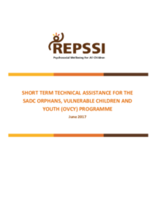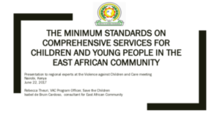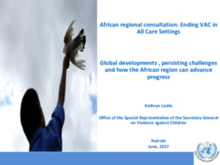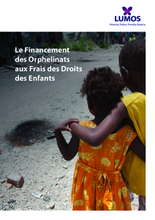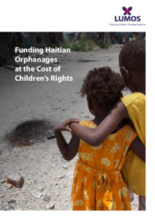Displaying 2621 - 2630 of 4424
REPSSI is supporting SADC to secure a consultant to provide short term technical assistance (TA) for the orphans, vulnerable children and youth programme.
This presentation provides a background on the East African Community (EAC) Child Policy (2016) and describes the minimum standards and corresponding framework and strategies for providing services to children and young people within the East African Community.
This presentation provides an overview of recent efforts and developments to end violence against children in all care settings around the world. Persisting global challenges and opportunities at the national, regional and global levels to end violence against children are also identified.
This study investigated the relationship between quality of child care and social-emotional development in 2- to 3-year old children in the Netherlands.
This article focuses on the assessment of the effects of early institutional care and compares three longitudinal studies from Romania, Greece and Hong Kong/China.
The Guardian reports on the failures of a 10-year Northern Territory (Australia) intervention to address indigenous inequality for aboriginal children within the care system.
This article discusses findings from the recent Lumos report, Funding Haitian Orphanages at the Cost of Children's Rights, stressing the circumstances under which children enter into residential care as well as the prevalence of abuse within the care system.
Pour comprendre la raison pour laquelle les orphelinats continuent de se développer en Haïti et la façon dont ils affectent les enfants, Lumos a mené une enquête sur les modes de financement et les ramifications de la vie en orphelinat sur les enfants élevés entre leurs murs.
In this report, Lumos investigates the funding patterns of Haitian orphanages as well as the ramifications of orphanage life for the children raised within them to better understand why orphanages continue to flourish in the country.
Lawmakers are considering five bills to help families stay together and modernize and improve the United States foster care system.

